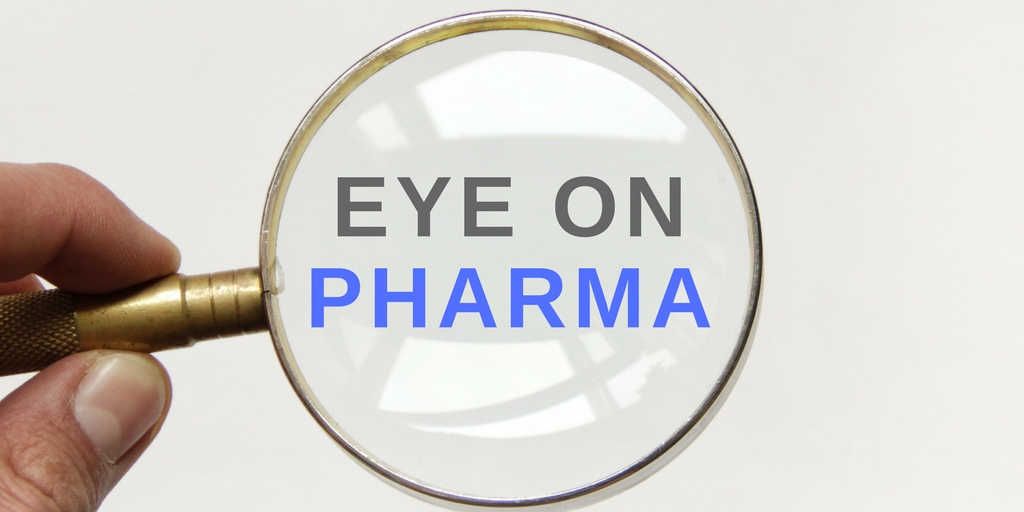- Bone Health
- Immunology
- Hematology
- Respiratory
- Dermatology
- Diabetes
- Gastroenterology
- Neurology
- Oncology
- Ophthalmology
- Rare Disease
- Rheumatology
Eye on Pharma: Canadian Aflibercept Settlement; Sandoz Acquires Cimerli; Payer Chooses Cyltezo
Biocon Biologics settled with the maker of Eylea (aflibercept), announcing a launch date for its biosimilar competitor in Canada; Sandoz has officially acquired Cimerli, a ranibizumab biosimilar; AARP Medicare Rx from United Healthcare has added Cyltezo (adalimumab-adbm) and removed the originator (Humira) from its formulary.
Biocon Biologics reached a settlement with the maker of Eylea (aflibercept), announcing a launch date for its biosimilar competitor in Canada; Sandoz has officially acquired Cimerli, a ranibizumab biosimilar; AARP Medicare Rx from United Healthcare has added Cyltezo (adalimumab-adbm) and removed the originator (Humira) from its formulary.
Aflibercept Settlement in Canada

Biocon Biologics settled with Bayer and Regeneron Pharmaceuticals regarding its aflibercept biosimilar candidate (Yesafili), allowing it to launch in Canada no sooner than July 1, 2025, according to a report from Business Standard.
Yesafili received tentative approval from Health Canada in March 2023. Yesafili is used to treat various eye diseases, including neovascular age-related macular degeneration, central retinal vein occlusion, branch retinal vein occlusion, diabetic macular edema, and myopic choroidal neovascularization.
This settlement followed patent infringement proceedings in Canada. Biocon Biologics has been expanding its biosimilar portfolio globally, with Yesafili already receiving marketing authorization in the United Kingdom and the European Union in November and September 2023, respectively.
Sandoz Acquires Ranibizumab Biosimilar
Sandoz announced that it has completed the acquisition of Cimerli (ranibizumab-eqrn), a biosimilar referencing Lucentis (ranibizumab), from Coherus Biosciences.
The biosimilar was approved in August 2022 and launched on the US market in October 2022. Cimerli was also one of the first biosimilars to receive an interchangeability designation. Ranibizumab products are vascular endothelial growth factor inhibitors used to treat neovascular age-related macular degeneration, diabetic retinopathy, and macular edema.
The acquisition included a biologics license application, product inventory, ophthalmology sales and field reimbursement talent, and access to proprietary commercial software. Sandoz disclosed that it paid $170 million in upfront payments.
“Today we further expand the Sandoz biosimilar portfolio, while advancing our mission in the U.S. of pioneering patient access to more affordable and much-needed medicines,” Keren Haruvi, president of Sandoz North America, said in the release. “With the addition of Cimerli to our existing ophthalmology franchise, we can now offer even more treatment options for U.S. patients with vision impairment and loss.”
Trend of Payers Choosing Adalimumab Biosimilars Over Humira Continues
AARP Medicare Rx from United Healthcare has chosen to add Cyltezo, an interchangeable adalimumab biosimilar, to its formulary in place of Humira, the originator. Cyltezo is also the only adalimumab biosimilar on the list.
Adalimumab products are used to treat a number of inflammatory conditions, including rheumatoid arthritis, psoriatic arthritis, ulcerative colitis, Crohn disease, hidradenitis suppurativa, ankylosing spondylitis, uveitis, and juvenile idiopathic arthritis.
The news comes after CVS Health announced that it would remove Humira from some of its reimbursement lists in favor of Cyltezo and Abrilada (adalimumab-afzb). Additionally, the Mark Cuban Cost Plus Drug Company, an online pharmacy dedicated to improving access to lower-cost generics, chose Coherus Biosciences’ Yusimry (adalimumab-aqvh) as the only adalimumab biosimilar and first biologic to offer to its customers.
Newsletter
Where clinical, regulatory, and economic perspectives converge—sign up for Center for Biosimilars® emails to get expert insights on emerging treatment paradigms, biosimilar policy, and real-world outcomes that shape patient care.
